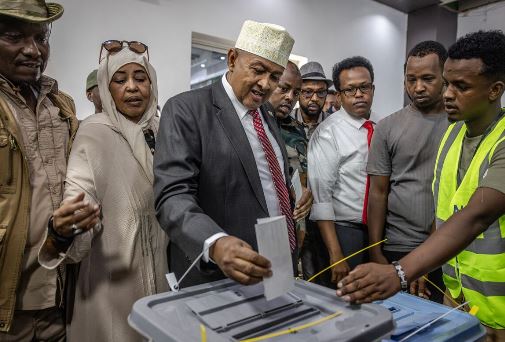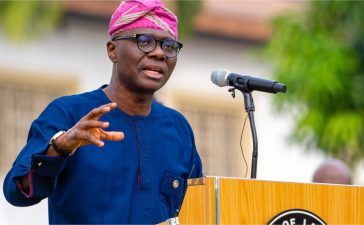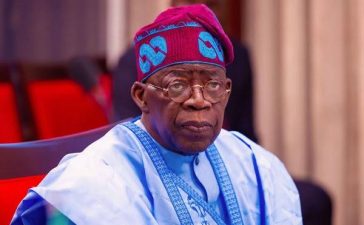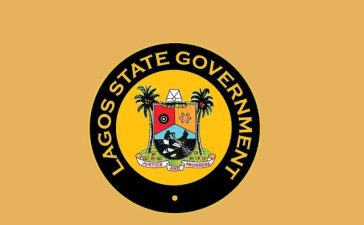An opposition leader in Somaliland has secured a significant victory in the region’s elections, raising questions about the future of a military base deal with Ethiopia.
The newly elected leader’s win has cast doubt on whether the semi-autonomous region will honor the controversial agreement that would allow Ethiopia to build a military base on Somaliland’s strategic coastline along the Gulf of Aden.
The election outcome marks a dramatic shift in Somaliland’s political landscape, with opposition leader Abdirahman Mohamed Abdullahi defeating incumbent President Muse Bihi in the highly contested November 13, 2024 vote.
Abdullahi, who has a history of advocating for greater independence and autonomy for Somaliland, secured about 64% of the vote, signaling a clear desire for change among the electorate.
The Ethiopia Military Base Deal
The deal between Somaliland and Ethiopia—which had been in the works for some time—had been seen as a strategic partnership aimed at enhancing regional security and increasing Ethiopia’s military presence on the Gulf of Aden, a critical waterway for international trade.
Under the agreement, Ethiopia was poised to establish a military base in Berbera, a port city on the coast of Somaliland, in exchange for economic and military cooperation.
The military base plan, however, has raised concerns both within Somaliland and internationally.
Meanwhile, critics argue that the establishment of a foreign military base on the region’s coast could undermine Somaliland’s sovereignty and exacerbate tensions with neighboring countries, particularly Somalia, which does not recognize Somaliland’s independence.
Implications of the Election Result
Abdullahi’s victory represents a significant shift in Somaliland’s political direction. As a former speaker of parliament and a seasoned opposition figure, Abdullahi’s win signals a potential change in policy regarding Somaliland’s foreign relations, including the deal with Ethiopia.
His administration might reconsider or even halt the military base agreement as part of its efforts to assert Somaliland’s independence and sovereignty.
The issue of a military base has long been contentious within Somaliland. While some see it as an opportunity to bolster the region’s security and improve its relations with neighboring Ethiopia, others view it as a step toward greater foreign influence in the region and a potential threat to Somaliland’s autonomy.
Regional and International Reactions
The election result has garnered significant attention from regional and international stakeholders. Ethiopia, which had hoped to cement its military presence in the region through the agreement, may now have to navigate a more complex diplomatic landscape.
Ethiopia has been eager to expand its military footprint in the Horn of Africa, especially given the strategic importance of the Gulf of Aden, which is vital for global shipping routes.
For Somalia, which considers Somaliland part of its territory, the new government in Hargeisa could either increase or reduce tensions depending on how it navigates relations with Ethiopia and the Somali central government.
Some fear that a shift in policy by Somaliland’s new leadership could strain ties with Addis Ababa and complicate regional dynamics.
International powers, including the United States and European Union, have also expressed interest in the political and security developments in Somaliland, particularly as they relate to the Gulf of Aden’s significance in global trade and the security of the Horn of Africa.
A Shift Toward Greater Sovereignty?
The outcome of the election may mark a turning point for Somaliland, which declared independence from Somalia in 1991 but remains largely unrecognized by the international community.
Under President Bihi, the region had pursued closer ties with Ethiopia and other international partners, particularly in the security and economic realms.
However, Abdullahi’s victory could signal a desire for more independence from external influence and a reaffirmation of Somaliland’s sovereignty.
Abdullahi has indicated that his administration will prioritize Somaliland’s self-determination and may revisit all international agreements, including the controversial military base deal with Ethiopia, to ensure that they align with the region’s long-term interests.
While the election of Abdirahman Mohamed Abdullahi brings hope for change and self-determination in Somaliland, it also injects uncertainty into the future of the military base agreement with Ethiopia.
The new administration’s foreign policy will be watched closely by both regional powers and international stakeholders as Somaliland navigates the delicate balance between security, sovereignty, and international relations.
As the region charts its future, questions remain over how Somaliland’s new leadership will engage with Ethiopia and whether the military base deal will be revisited or scrapped altogether.
The Gulf of Aden remains a crucial geopolitical flashpoint, and the decisions made by the new government could have far-reaching consequences for Somaliland, Ethiopia, and the broader Horn of Africa region.







